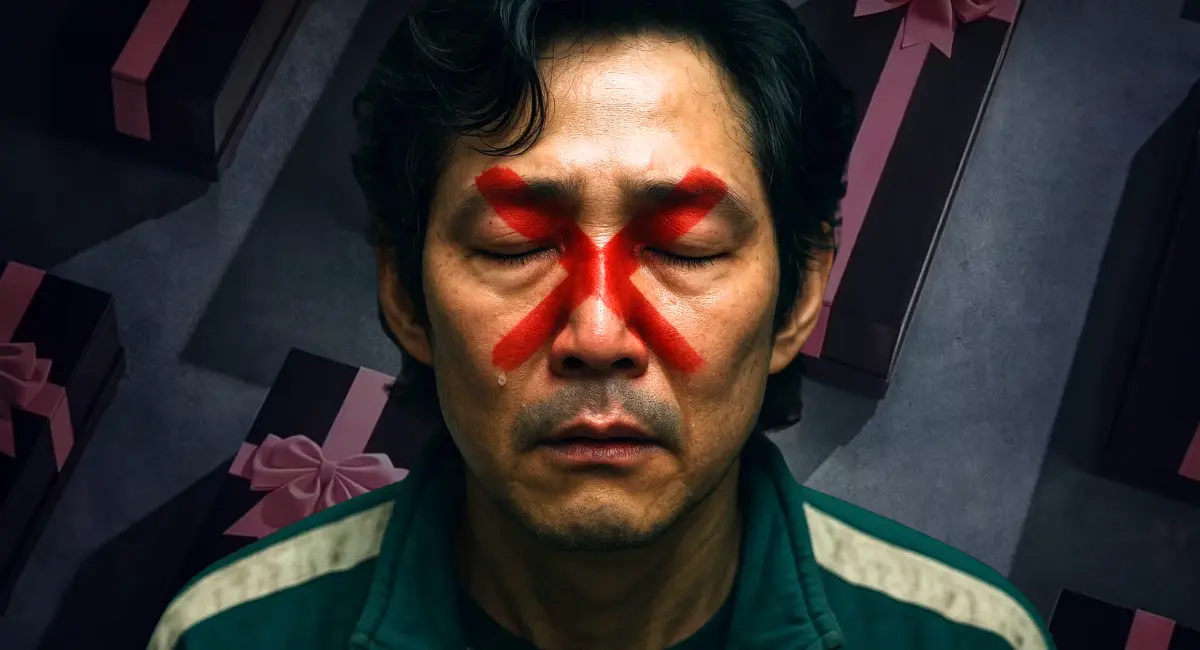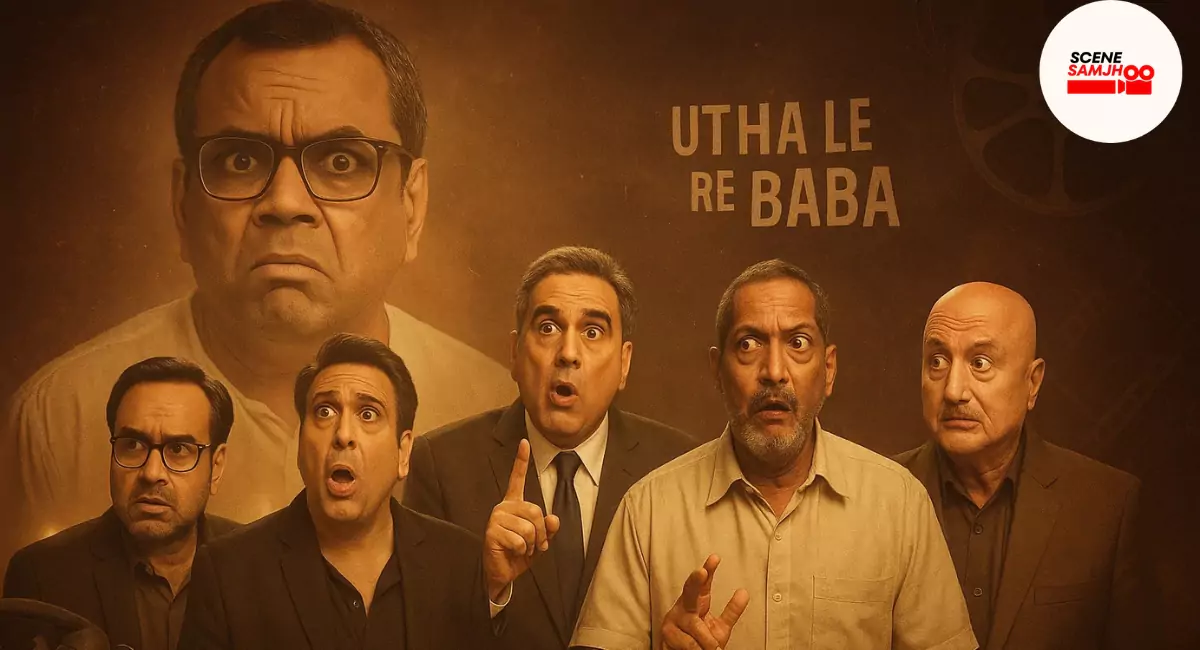You’re witnessing something special when Maa movie review discussions dominate social media conversations. After a three-year hiatus from lead roles, Kajol returns with a vengeance in Vishal Furia’s mythological horror that promises to redefine Indian cinema’s supernatural genre.
Warning: This review contains spoilers. We’ll mark major plot reveals clearly.
What Happens When Ancient Curses Meet Modern Motherhood
The Setup: A Family’s Dark Heritage
Maa opens with the chilling sacrifice of a newborn girl in Chandarpur during Kali Puja, forty years before the main story unfolds. The film then introduces us to Ambika (Kajol), living peacefully in the city with her husband Shuvankar (Indraneil Sengupta) and daughter Shweta (Kherin Sharma). When Shuvankar’s father dies, the family must return to his ancestral village, a place they’ve deliberately avoided.
The mythology runs deeper than surface scares. The story draws from the legend of Goddess Kali and demon Raktabija, where each drop of the demon’s blood creates new monsters. This ancient tale becomes terrifyingly personal when Ambika discovers her daughter is the target of a curse that has plagued the village for decades.
Rising Terror: When Daughters Disappear
Young girls in Chandarpur mysteriously vanish after reaching puberty, only to return days later with no memory and their menstrual cycles permanently stopped. The demon Raktabija’s offspring, residing in a massive banyan tree, seeks to impregnate adolescent girls to birth his heir.
Shweta befriends local girl Deepika, and their innocent exploration of the forbidden forest triggers the supernatural events that will test Ambika’s limits as a mother.
Performances That Anchor the Supernatural Storm
Kajol’s Career-Defining Return
Kajol delivers a performance that transcends the screen, speaking directly to the soul with unmatched depth, portraying a mother caught between fear and courage. Her transformation from grieving widow to divine warrior feels authentic rather than theatrical.
You’ll believe every moment of her anguish. Her eyes carry the weight of maternal love and desperate determination, making even the film’s more outlandish moments emotionally grounded.
Supporting Cast Brings Depth to Bengal’s Haunted Village
Ronit Roy shines as village leader Joydev, though his heavily accented Bengali dialogue occasionally overshadows his otherwise solid performance. Kherin Sharma as Shweta delivers an age-appropriate performance that never feels forced or precocious.
The real surprise comes from Roopkatha Chakraborty as Deepika, whose brief screen time creates a genuine emotional connection with audiences.
Vishal Furia’s Vision: Mythology Meets Modern Horror
The cinematography captures haunting rural India beautifully, crumbling temples, misty forests, and flickering oil lamps make Chandarpur feel like a living organism. Furia succeeds in creating genuine dread without relying on cheap jump scares.
The film’s exploration of menstruation taboos and female infanticide adds contemporary relevance to ancient mythology. These themes resonate powerfully when handled with sensitivity.
Where It Stumbles: Pacing and Logic Gaps
The VFX quality varies dramatically, impressive in goddess manifestation scenes but tacky during creature encounters. Some supernatural elements feel more like television production values than cinematic spectacle.
The second half loses narrative focus, with plot conveniences that undermine the carefully built tension from earlier scenes.
Technical Craft: Beauty Marred by Inconsistency
The visual design successfully captures rural Bengal’s eerie atmosphere, with crumbling architecture and fog-laden forests creating authentic supernatural dread. Colour palettes shift effectively between warm family moments and cold supernatural encounters.
Sound Design and Music: Mixed Results
The traditional instruments during ritual sequences enhance the mythological atmosphere. However, the background score lacks bite, and songs feel unnecessarily inserted, particularly during the climax.
Visual Effects: When Spectacle Fails Narrative
While goddess Kali’s manifestations impress visually, the demon creature looks like it escaped from a dated television production. Modern horror demands better creature design, especially when competing with international standards.

Mythology Meets Modernity: Themes That Matter
- Feminism Through Divine Power: The film positions motherhood as the ultimate divine force. When institutional systems fail, Ambika stops asking for help and becomes the help, an empowering message about maternal strength.
- Confronting Patriarchal Traditions: The story addresses female infanticide and menstruation stigma through supernatural horror, though some reviewers noted regressive undertones in its execution. The film walks a thin line between challenging these practices and reinforcing them.
- Rural India’s Supernatural Heritage: Chandarpur represents countless Indian villages where ancient beliefs intersect with modern life. The film succeeds in making local folklore feel universally relevant.
How Does Maa Compare to Horror Cinema?
Compared to recent successes like Tumbbad and Stree, Maa offers more emotional depth but less consistent scares. It shares DNA with Bhool Bhulaiyaa‘s mythology-horror blend but lacks that film’s entertainment balance.
Unlike films such as Hereditary or The Witch, which build sustained dread, Maa relies heavily on emotional investment rather than pure horror craftsmanship.
Audience Reception and Cultural Impact
Early overseas reviews gave the film 3.5 stars, calling it “an extremely well-made horror drama entertainer”, while domestic critics have been more reserved in their praise. Maa earned ₹2.86 crores on its opening day with 16.49% occupancy, indicating moderate audience interest despite strong promotional campaigns.
Final Verdict: Worth Your Time?
Kajol’s powerhouse performance alone justifies watching this film. The sincere attempt to blend mythology with contemporary horror deserves recognition, even when execution falters. The film succeeds as an emotional journey about maternal love conquering supernatural evil. You’ll connect with Ambika’s desperation and cheer her divine transformation.
Where It Falls Short of Greatness
Despite having all the right ingredients, mythology, maternal power, horror, and drama, the film never fully turns up the heat, resulting in a lukewarm tale. Technical inconsistencies and pacing issues prevent this from becoming the landmark horror film it aspires to be.
Our Rating
Maa movie review concludes with mixed feelings, a film elevated by stellar central performance but hampered by execution flaws. Kajol’s return to horror succeeds emotionally, even when the surrounding film struggles to match her intensity.
This mythological horror offers enough genuine moments to justify viewing, particularly for audiences hungry for content that celebrates maternal strength through divine power. While not the masterpiece it could have been, Maa movie review reveals a film worth experiencing for Kajol’s commanding presence alone.











